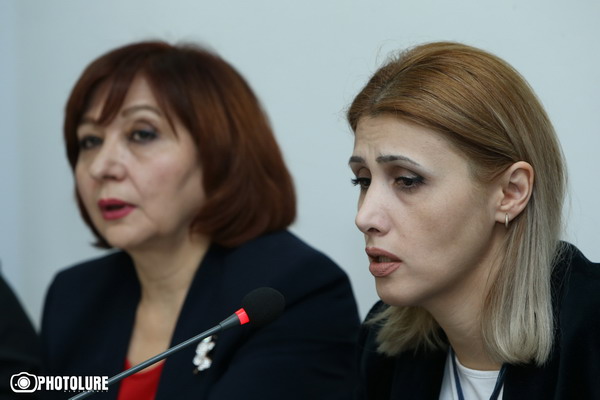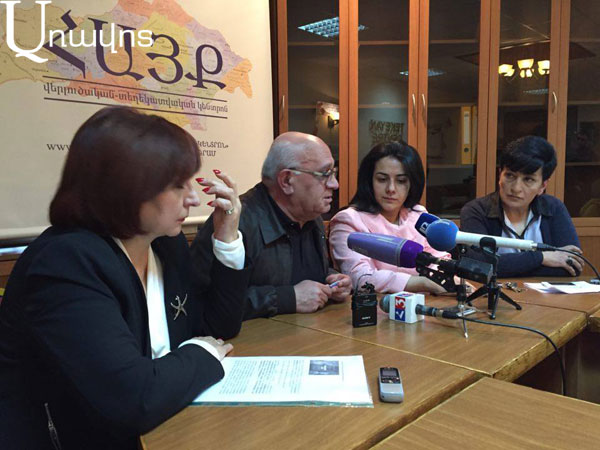Armenian National Congress (ANC) member thinks that the CIS Free Trade Area agreement is “formal”
During the latest 4-day session, the National Assembly of the Republic of Armenia ratified the CIS Free Trade Area agreement signed in St. Petersburg in 2011, on which an agreement was reached in July, during the visit of Valentina Matviyenko, the chairman of the Federation Council of the Russian Federation, to Armenia. The agreement was passed with 97 yeas, 2 nays and 7 abstain. The main opponent of the agreement in the parliament was Hrant Bagratyan, a former Prime Minister and a member of the ANC parliamentary group. During a conversation with Aravot yesterday, another member of the ANC, Zoya Tadevosyan, the coordinator of the People’s Power Party, stated that the ratification of that agreement was absurd, “Those 97 MPs who pressed the button without realizing that by their pressing the button, they ratified a document, which won’t be effective, won’t be implemented and bring economic benefits to this country, surprise me.” Referring to the experience of the European countries, our interlocutor expressed an idea that this agreement could bring benefit to only those countries that have common borders, whereas the Republic of Armenia didn’t have a common border with countries that signed the agreement. Our immediate neighbors, Georgia and Azerbaijan, haven’t signed that agreement. “They haven’t sign not because they haven’t attached
importance to that document at the moment, but I think our neighbors have political agreements,” Zoya Tadevosyan says thinking that the question – why Azerbaijan, for which the ratification of the agreement at the moment would have been quite beneficial, refused to ratify it – is a subject of a longer conversation.
Read also
“It turns out that presently, the relations between Azerbaijan and Georgia are closer than economic relations of these two countries with the other CIS countries. And Armenia is an outsider on the map of these relations. However, Armenia ratifies an agreement, in order to have economic benefits as a result of eliminated tariffs. If our commodities enter the Russian Federation, Ukraine or other CIS countries through Georgia, they will encounter customs obstacles in Georgia. There can be transit payments, which is the case right now. Then what Armenia gains? Nothing. It means that those eliminated tariffs will not be in effect for Armenia,” Zoya Tadevosyan said. As opposed to all those politicians who propagate that agreement from the political perspective, our interlocutor states that it is just an economic document. “Yes, it has political overtones. Certainly, they would like countries to rally around a common economic policy, which may turn into political cooperation in the future. However, the European experience shows that regardless of how close the economic ties among the European countries are, nonetheless, no political organization emerges,” our interlocutor responds reminding about the failure of the common European Constitution.
Even if the obstacle of common borders is miraculously removed, Zoya Tadevosyan doesn’t expect any benefits from this agreement, anyway, “Those countries must have such a level of economic development, the industrial development must be at such a level that they can exchange not similar, but different commodities with each other. It is the benefit and effect of trade, whereas in the framework of this agreement, all the cooperating countries are countries that export minerals and other natural resources. What will these countries gain from this agreement?” Given all this, our interlocutor calls this an attempt to revive the CIS economic cooperation established in 1992 and constantly weakening and adds, “The governments of those country must first of all realize that in order to cooperate, one must increase the level of the given countries’ economic development. Otherwise, there will be no cooperation; neither will these agreements yield results. This is a formal agreement, which will not be in effect and not only for Armenia, which doesn’t have a common border, but also for the other countries.”
NELLY GRIGORYAN























































